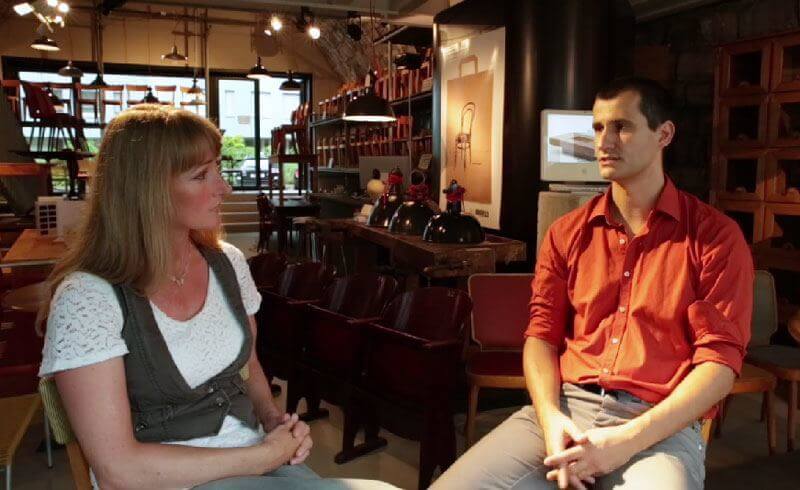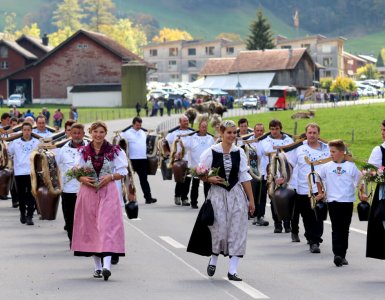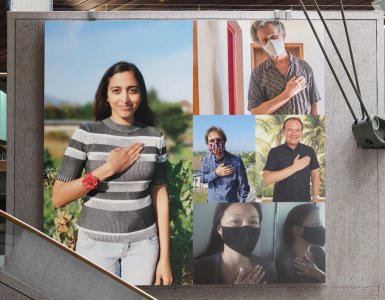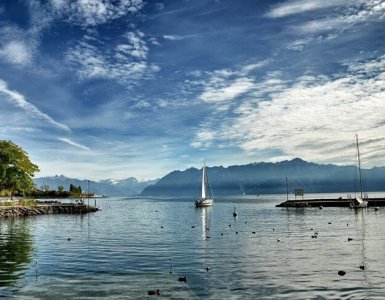
First, there was the people’s initiative against minarets. This was followed by the initiative to deport non-Swiss citizens convicted of crimes. And in February 2014, there was the initiative against mass immigration.
All three initiatives won with a slight margin over the "no" vote. Many more right leaning parties across Europe have embraced the Swiss way of doing things, while the more liberal ones have turned to labeling the Alpine Nation as a country of xenophobes.
Foreign nationals capture the political imagination
Living in Switzerland, I do not believe that this is a country of right-radicals or xenophobes. And though the rightwing Swiss People's Party (SVP) likes to conjure up the image of the evil foreigner, they do so to get political attention.
At the moment, the unfortunate thing is that the SVP do a good job at getting attention. And as Arthur Rutishauser, editor-in-chief at the SonntagsZeitung, wrote, the problem in Swiss politics is that the discussion surrounding foreign nationals is the only topic that seems to get anyone's attention.
Let's try something new: Marathon Gespräche
Marathon Sprachen is the language school I started with my friend AnneMarie in 2009. Last year, we started getting media attention for the work we do with expats.
I noticed that the story surrounding the much talked about Ausländer (foreigner) rarely treated them as individuals, but always as part of a collective. This was not good enough to me as I dislike making generalizations, so I came up with the idea of Marathon Gespräche: A conversation series with foreign nationals living in Switzerland.
The series is in German and subtitled in English. The goal of the series is two fold: First, to give people who have moved to Switzerland (or are moving here) valuable firsthand information on the integration process and life in Switzerland.
Secondly, to show Swiss viewers that many people are trying to do their best at integrating by learning German and being active members of their new community.
Marathon Gespräch mit Edvin Ramić
After months of planning and working out our ideas, we filmed the first episode of what we hope will turn into a series of 10+ episodes. The filming and editing was done by Single Cask Studios, a new marketing and advertising agency in Zurich in which I am involved.
Our first guest, Edvin Ramić from Slovenia, had great insights into integration in Switzerland and was the perfect conversation partner. He helped us establish exactly what we wanted - a positive tone to the conversation that puts individuals at the forefront (as opposed to collective titles).
Watch our first episode below and meet Edvin:
We need your support
We will need two things for this series to take off: Funding and conversation partners. If you or your company believe in this series and the message we are trying to convey, please make a donation or contact us to see how we can work together.
If you have a great integration story to share and feel comfortable doing it in German (it does not have to be perfect), we would love to hear from you and arrange a time to film.
Filming generally takes three hours for about 7 to 10 minutes of footage. Without being a simple question and answer session, we would like to know where you are from, how long you have been in Switzerland, your motivation for coming here and stories of success and hardship with your transition to life in Switzerland.





What a great endeavor, this video series! I am thoroughly impressed with Mr. Ramić’s dedication to learning German. The only other expats I know with such a good grasp of the language after only a couple of years in CH are two American friends of ours with Swiss partners. My American husband and I lived in Switzerland for two years, and our German language skills are truly shameful. We arrived without any foundation in the language, took courses for less than a year, and gave up out of frustration. We got by with a few essential phrases and English-speaking friends (who could also translate a few things for us). One of our greatest regrets is not making more of an effort to learn the language. If we ever have the opportunity to move back (a huge dream of ours), the first thing we said we’d do is focus more on learning German. Kudos all around, and I look forward to future videos in this series!
I am so impressed with Edvin’s grasp of the language after only two years, and his attitude is absolutely fantastic. I wish him and his family only the best. I know how frustrating the expat life can be – I was quite often one myself – but I never had to learn such a complicated language as Swiss German ;) Thank you so much for doing this series – and I hope the “right people” will listen to it.
This is a great show. Just a bit of constructive feedback. I think many German learners would like myself would prefer there was an option to have subtitles in German, not just English. Looking forward to watching the others.
Thank you for the feedback Paul. We’ll definitely take it into consideration as your point is very good. The subtitling is a very time consuming process. If we start to get the funding we need for this project, it will be quite high on the to-do list.